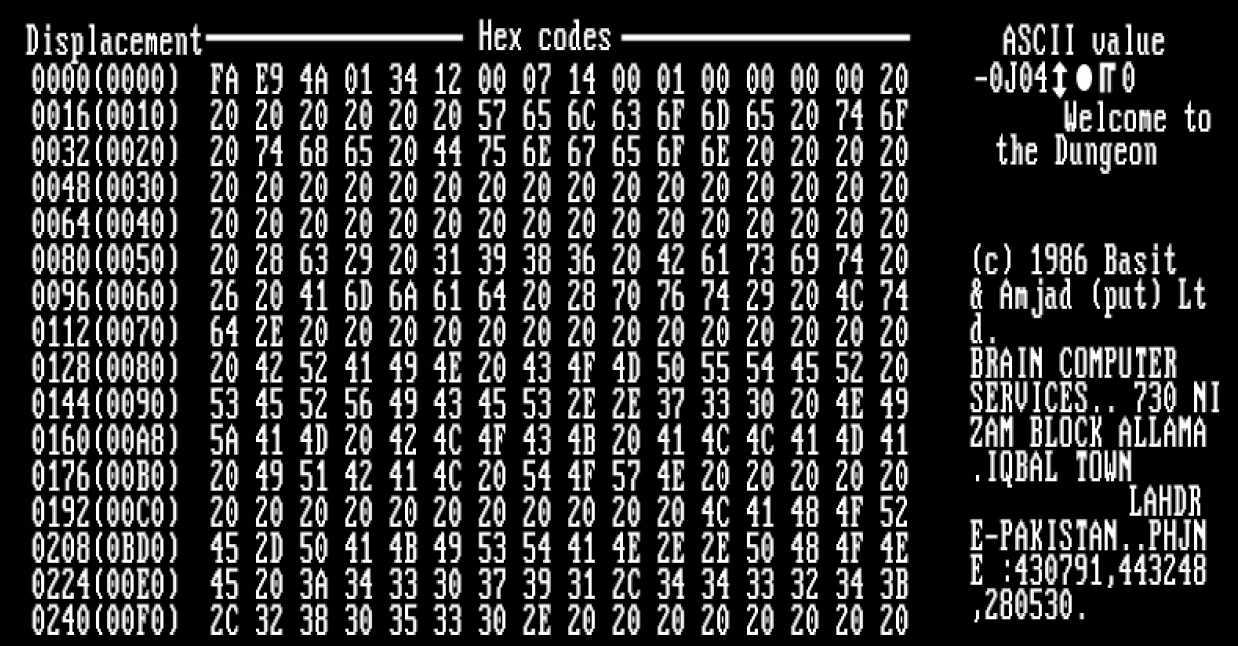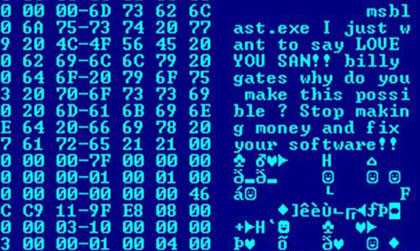|
NProtect GameGuard Personal 2007
nProtect GameGuard Personal 2007 (often referred to as nProtect GGP2007) is an Anti-Virus security suite for Microsoft Windows 2000, XP, and Vista developed by INCA Internet for users playing online computer games. It includes real-time protection from most forms of malware, including viruses, trojans, spyware, worms, keyloggers, and rootkits, as well as a game optimization feature. Like many other security products, nProtect GameGuard Personal 2007 can cause collisions when executed with security products simultaneously. The collisions mainly occur when running the on-access scanning (real-time scanning) simultaneously. nProtect GameGuard Personal 2007 is available both in a free and a non-free edition, the former lacking treatment abilities for some malware. See also * INCA Internet Co., Ltd. *nProtect GameGuard nProtect GameGuard (sometimes called GG) is an anti-cheating rootkit developed by INCA Internet. It is widely installed in many online games to bloc ... [...More Info...] [...Related Items...] OR: [Wikipedia] [Google] [Baidu] |
Computer Virus
A computer virus is a type of computer program that, when executed, replicates itself by modifying other computer programs and inserting its own code. If this replication succeeds, the affected areas are then said to be "infected" with a computer virus, a metaphor derived from biological viruses. Computer viruses generally require a host program. The virus writes its own code into the host program. When the program runs, the written virus program is executed first, causing infection and damage. A computer worm does not need a host program, as it is an independent program or code chunk. Therefore, it is not restricted by the host program, but can run independently and actively carry out attacks. Virus writers use social engineering deceptions and exploit detailed knowledge of security vulnerabilities to initially infect systems and to spread the virus. Viruses use complex anti-detection/stealth strategies to evade antivirus software. Motives for creating viruses can inclu ... [...More Info...] [...Related Items...] OR: [Wikipedia] [Google] [Baidu] |
GameGuard
nProtect GameGuard (sometimes called GG) is an anti-cheating rootkit developed by INCA Internet. It is widely installed in many online games to block possibly malicious applications and prevent common methods of cheating. nProtect GameGuard provides B2B2C (Business to Business to Consumer) security services for online game companies and portal sites. The software is considered to be one of three software programs which ''"dominate the online game security market"''. GameGuard uses rootkits to proactively prevent cheat software from running. GameGuard hides the game application process, monitors the entire memory range, terminates applications defined by the game vendor and INCA Internet to be cheats ( QIP for example), blocks certain calls to Direct X functions and Windows APIs, keylogs keyboard input, and auto-updates itself to change as new possible threats surface. Since GameGuard essentially works like a rootkit, players may experience unintended and potentially unwante ... [...More Info...] [...Related Items...] OR: [Wikipedia] [Google] [Baidu] |
Rootkits
A rootkit is a collection of computer software, typically malicious, designed to enable access to a computer or an area of its software that is not otherwise allowed (for example, to an unauthorized user) and often masks its existence or the existence of other software. The term ''rootkit'' is a compound of "root" (the traditional name of the privileged account on Unix-like operating systems) and the word "kit" (which refers to the software components that implement the tool). The term "rootkit" has negative connotations through its association with malware. Rootkit installation can be automated, or an attacker can install it after having obtained root or administrator access. Obtaining this access is a result of direct attack on a system, i.e. exploiting a vulnerability (such as privilege escalation) or a password (obtained by cracking or social engineering tactics like "phishing"). Once installed, it becomes possible to hide the intrusion as well as to maintain privileged ac ... [...More Info...] [...Related Items...] OR: [Wikipedia] [Google] [Baidu] |
Keyloggers
Keystroke logging, often referred to as keylogging or keyboard capturing, is the action of recording (logging) the keys struck on a keyboard, typically covertly, so that a person using the keyboard is unaware that their actions are being monitored. Data can then be retrieved by the person operating the logging program. A keystroke recorder or keylogger can be either software or hardware. While the programs themselves are legal, with many designed to allow employers to oversee the use of their computers, keyloggers are most often used for stealing passwords and other confidential information. Keylogging can also be used to study keystroke dynamics or human-computer interaction. Numerous keylogging methods exist, ranging from hardware and software-based approaches to acoustic cryptanalysis. Application of keylogger Software-based keyloggers A software-based keylogger is a computer program designed to record any input from the keyboard. Keyloggers are used in IT organizatio ... [...More Info...] [...Related Items...] OR: [Wikipedia] [Google] [Baidu] |
Computer Worm
A computer worm is a standalone malware computer program that replicates itself in order to spread to other computers. It often uses a computer network to spread itself, relying on security failures on the target computer to access it. It will use this machine as a host to scan and infect other computers. When these new worm-invaded computers are controlled, the worm will continue to scan and infect other computers using these computers as hosts, and this behaviour will continue. Computer worms use recursive methods to copy themselves without host programs and distribute themselves based on the law of exponential growth, thus controlling and infecting more and more computers in a short time. Worms almost always cause at least some harm to the network, even if only by consuming bandwidth, whereas viruses almost always corrupt or modify files on a targeted computer. Many worms are designed only to spread, and do not attempt to change the systems they pass through. However, as th ... [...More Info...] [...Related Items...] OR: [Wikipedia] [Google] [Baidu] |
Spyware
Spyware (a portmanteau for spying software) is software with malicious behaviour that aims to gather information about a person or organization and send it to another entity in a way that harms the user—for example, by violating their privacy or endangering their device's security. This behaviour may be present in malware as well as in legitimate software. Websites may engage in spyware behaviours like web tracking. Hardware devices may also be affected. Spyware is frequently associated with advertising and involves many of the same issues. Because these behaviors are so common, and can have non-harmful uses, providing a precise definition of spyware is a difficult task.FTC Report (2005)." History The first recorded use of the term :wikt:spyware, spyware occurred on October 16, 1995 in a Usenet post that poked fun at Microsoft's business model.Vossen, Roland (attributed); October 21, 1995Win 95 Source code in c!!posted to rec..programmer; retrieved from groups.google.co ... [...More Info...] [...Related Items...] OR: [Wikipedia] [Google] [Baidu] |
Trojan Horse (computing)
In computing, a Trojan horse is any malware that misleads users of its true intent. The term is derived from the Ancient Greek story of the deceptive Trojan Horse that led to the fall of the city of Troy. Trojans generally spread by some form of social engineering; for example, where a user is duped into executing an email attachment disguised to appear innocuous (e.g., a routine form to be filled in), or by clicking on some fake advertisement on social media or anywhere else. Although their payload can be anything, many modern forms act as a backdoor, contacting a controller who can then have unauthorized access to the affected computer. Ransomware attacks are often carried out using a Trojan. Unlike computer viruses and worms, Trojans generally do not attempt to inject themselves into other files or otherwise propagate themselves. Use of the term It's not clear where or when the concept, and this term for it, was first used, but by 1971 the first Unix manual assumed its r ... [...More Info...] [...Related Items...] OR: [Wikipedia] [Google] [Baidu] |
Malware
Malware (a portmanteau for ''malicious software'') is any software intentionally designed to cause disruption to a computer, server, client, or computer network, leak private information, gain unauthorized access to information or systems, deprive access to information, or which unknowingly interferes with the user's computer security and privacy. By contrast, software that causes harm due to some deficiency is typically described as a software bug. Malware poses serious problems to individuals and businesses on the Internet. According to Symantec's 2018 Internet Security Threat Report (ISTR), malware variants number has increased to 669,947,865 in 2017, which is twice as many malware variants as in 2016. Cybercrime, which includes malware attacks as well as other crimes committed by computer, was predicted to cost the world economy $6 trillion USD in 2021, and is increasing at a rate of 15% per year. Many types of malware exist, including computer viruses, worms, Trojan horses, ... [...More Info...] [...Related Items...] OR: [Wikipedia] [Google] [Baidu] |
Microsoft Windows 2000
Windows 2000 is a major release of the Windows NT operating system developed by Microsoft and oriented towards businesses. It was the direct successor to Windows NT 4.0, and was released to manufacturing on December 15, 1999, and was officially released to retail on February 17, 2000. It was Microsoft's business operating system until the introduction of Windows XP Professional in 2001. Windows 2000 introduced NTFS 3.0, Encrypting File System, as well as basic and dynamic disk storage. Support for people with disabilities was improved over Windows NT 4.0 with a number of new assistive technologies, and Microsoft increased support for different languages and locale information. The Windows 2000 Server family has additional features, most notably the introduction of Active Directory, which in the years following became a widely used directory service in business environments. Four editions of Windows 2000 were released: ''Professional'', ''Server'', ''Advanced Server'', and ' ... [...More Info...] [...Related Items...] OR: [Wikipedia] [Google] [Baidu] |
Online Computer Game
An online game is a video game that is either partially or primarily played through the Internet or any other computer network available. Online games are ubiquitous on modern gaming platforms, including PCs, consoles and mobile devices, and span many genres, including first-person shooters, strategy games, and massively multiplayer online role-playing games (MMORPG). In 2019, revenue in the online games segment reached $16.9 billion, with $4.2 billion generated by China and $3.5 billion in the United States. Since 2010s, a common trend among online games has been operating them as games as a service, using monetization schemes such as loot boxes and battle passes as purchasable items atop freely-offered games. Unlike purchased retail games, online games have the problem of not being permanently playable, as they require special servers in order to function. The design of online games can range from simple text-based environments to the incorporation of complex ... [...More Info...] [...Related Items...] OR: [Wikipedia] [Google] [Baidu] |
Anti-Virus
Antivirus software (abbreviated to AV software), also known as anti-malware, is a computer program used to prevent, detect, and remove malware. Antivirus software was originally developed to detect and remove computer viruses, hence the name. However, with the proliferation of other malware, antivirus software started to protect from other computer threats. In particular, modern antivirus software can protect users from malicious browser helper objects (BHOs), browser hijackers, ransomware, keyloggers, backdoors, rootkits, trojan horses, worms, malicious LSPs, dialers, fraud tools, adware, and spyware. Some products also include protection from other computer threats, such as infected and malicious URLs, spam, scam and phishing attacks, online identity (privacy), online banking attacks, social engineering techniques, advanced persistent threat (APT), and botnet DDoS attacks. History 1949–1980 period (pre-antivirus days) Although the roots of the computer viru ... [...More Info...] [...Related Items...] OR: [Wikipedia] [Google] [Baidu] |



.jpg)
